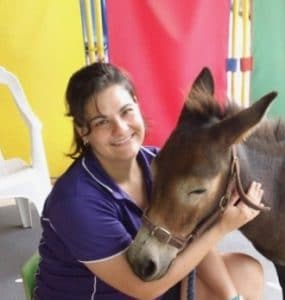Attention-Deficit/Hyperactivity Disorder (ADHD) is a neurodevelopmental condition affecting around 11 percent of school-age children. Understanding this condition, its symptoms and how to manage it effectively is important for the overall well-being and progress of your child. In this blog post, we will discuss ten insightful tips for managing ADHD in children.

Understanding ADHD Symptoms
Before we delve into the management strategies, let’s look at the common symptoms of ADHD in children:
- Inattention – easily distracted, forgetful, difficulty focusing on one task.
- Hyperactivity – difficulty sitting still, excessive talking, always on the go.
- Impulsivity – difficulty waiting for their turn, often interrupts others.
The Importance Of Early ADHD Management
The proactive management of ADHD is crucial as it has far-reaching effects on a child’s academic performance, social skills and self-esteem. But with early intervention and appropriate strategies, children with ADHD can lead successful and productive lives.
Tip 1: Structured Environment
A structured environment can provide a sense of order and predictability, which can be immensely helpful for children with ADHD.
Creating Order and Routine
- Keep a regular schedule for meals, homework, playtime and bedtime.
- Organise their belongings and maintain a clean, clutter-free environment.
- Use calendars and planners to keep track of important dates and tasks.
Tip 2: Encouragement And Rewards
Positive reinforcement can go a long way in managing ADHD symptoms. It boosts the child’s morale and encourages good behaviour.
Positive Reinforcement Techniques
- Offer praise for small accomplishments.
- Reward good behaviour with privileges or extra playtime.
- Implement a point system where points earned for good behaviour can be exchanged for rewards.
Tip 3: Setting Clear Expectations
Clear expectations provide guidelines for behaviour and reduce uncertainty.
Establishing Boundaries
- Set clear and consistent rules.
- Make sure the child understands what is expected of them.
- Provide consequences for breaking rules.
Tip 4: Maintaining Healthy Lifestyle
Maintaining a healthy lifestyle is integral to managing ADHD symptoms.
Importance of Diet and Exercise
- Ensure a balanced diet with enough protein and complex carbohydrates.
- Limit intake of sugary foods and drinks.
- Engage them in regular physical activity.
Tip 5: Psycho-Educational Intervention
Psycho-educational interventions like therapies and counselling can significantly help in managing ADHD.
Benefits of Therapies and Counselling
- Help the child to understand their condition.
- Teach them coping mechanisms.
- Improve their social skills.
Tip 6: Working With The School
Teachers can play an important role in managing ADHD in children.
How Teachers Can Help
- Implementing a tailored teaching strategy.
- Providing extra support and accommodations.
- Communicating regularly with parents.
Tip 7: Implementing Behavioural Therapy
Behavioural therapy is a commonly used method for treating ADHD in children.
Understanding Behavioural Therapy
- Helps to identify and change problematic behaviours.
- Provides the child with strategies to manage their symptoms.
- Can be implemented at home and school.
Tip 8: Medication Management
In some cases, medication may be necessary for managing ADHD symptoms.
Proper Usage of Medications
- Only used under the guidance of a healthcare professional.
- Regular follow-ups are necessary to monitor the child’s progress and side effects.
- Medication should be part of a comprehensive treatment plan.
Tip 9: Support Groups And Resources
Support groups and resources can provide invaluable help and advice.
Accessing Local and Online Communities
- Connect with parents who have similar experiences.
- Gain insights from professionals and experienced individuals.
- Find local and online resources for further support.
Tip 10: Emphasise The Positives
Lastly, always emphasise the positives and foster self-esteem.
Fostering Self-Esteem
- Highlight their strengths and achievements.
- Encourage their unique talents and interests.
- Ensure they know that they are loved and valued.
Discover Stepping Stones In Life Therapy Services
Managing ADHD is a journey and you don’t have to walk it alone. Reach out to Stepping Stones in Life Therapy Service, where our dedicated professionals are ready to assist you with comprehensive ADHD management strategies. Together, we can turn ADHD from a hurdle into a stepping stone to success.
Author

Barbara Kapser
Barbara Kapser is our psychologist at Stepping Stones in Life Therapy Service in Darwin. She's a member with the Australian Psychological Society and the Australian Association for Infant Mental Health.
She specialises in perinatal infant mental health, attachment disorders, developmental trauma and behaviour support.










